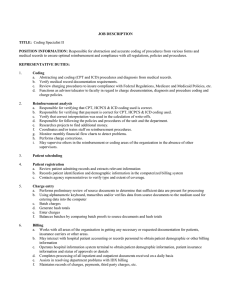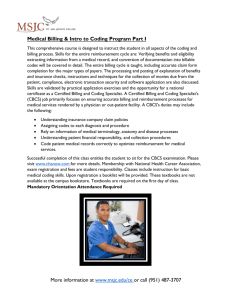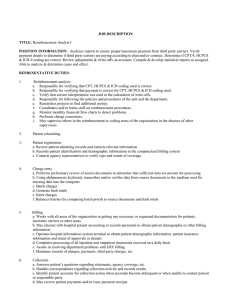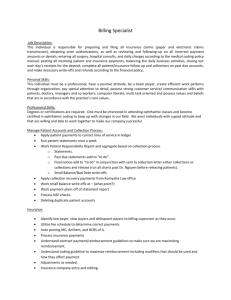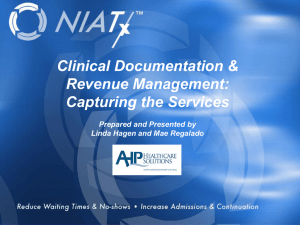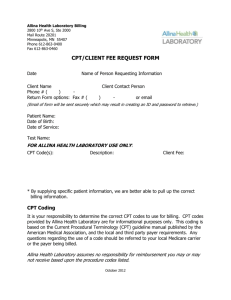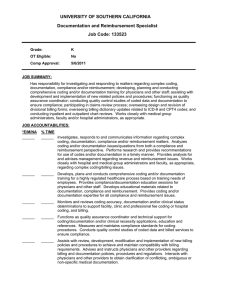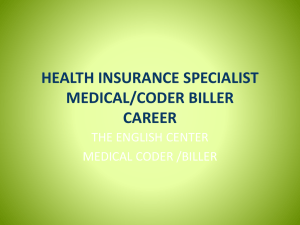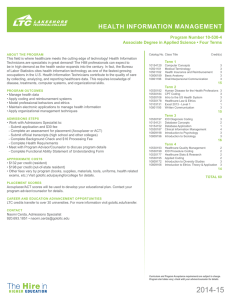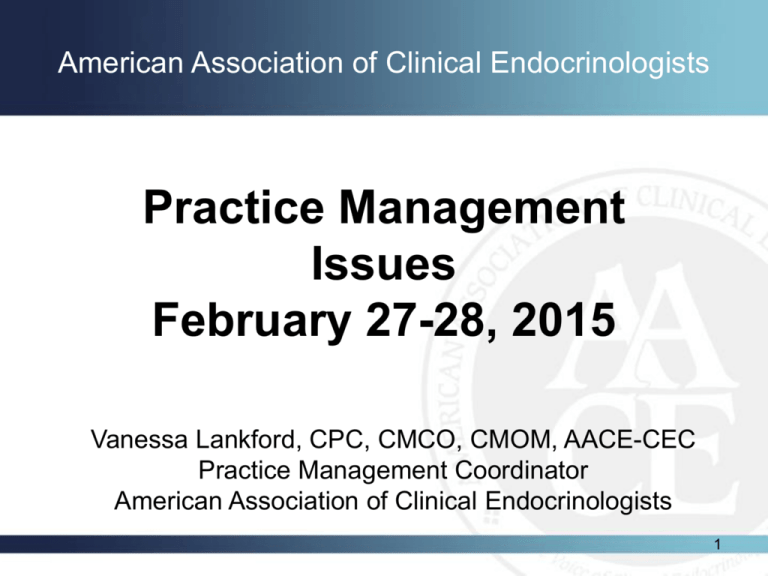
American Association of Clinical Endocrinologists
Practice Management
Issues
February 27-28, 2015
Vanessa Lankford, CPC, CMCO, CMOM, AACE-CEC
Practice Management Coordinator
American Association of Clinical Endocrinologists
1
General Disclaimer
All medical coding must be supported with documentation and medical necessity.
**While this department represents our best efforts to provide accurate information
and useful advice, we cannot guarantee that third-party payers will recognize and
accept the coding and documentation recommendations. As CPT®, ICD-9-CM
and HCPCS codes change annually, you should reference the current CPT®, ICD9-CM and HCPCS manuals and follow the "Documentation Guidelines for
Evaluation and Management Services" for the most detailed and up-to-date
information.
This information is taken from publicly available sources. The American
Association of Clinical Endocrinologists cannot guarantee reimbursement for
services as an outcome of the information and/or data used and disclaims any
responsibility for denial of reimbursement. This information is intended for
informational purposes only.
Current Procedural Terminology (CPT®) is copyright and trademark of the 2014
American Medical Association (AMA). All Rights Reserved. No fee schedules,
basic units, relative values, or related listings are included in CPT®. The AMA
assumes no liability for the data contained herein. Applicable FARS/DFARS
restrictions apply to government use.
2
Learning Objectives
• Manage the need for prior authorization in
terms of reimbursement
• Evaluate report requirements for billing
• Determine coding for coverage
3
Prior Authorizations
• Definition of a prior authorization
• Discuss types of authorizations
4
Management of Prior Authorizations
• Centralize responsibilities in office
• Maximize EHR Capabilities
• Maintain top payers authorization requirements
• Utilize Web Portals
5
Report Requirements for Billing
• Define Medical Necessity according to CMS
• Elements expected on an encounter
• Clear, consistent, concise documentation
6
Reimbursement According to:
• Federal Carriers
• Commercial Carriers
7
Medicare’s Guidelines
• Conditions of Coverage
• Frequency Standards
• Beneficiaries Who May be Covered
• What’s not covered?
• Claims processing
8
General Coding Guidelines
• CPT® Codes
• Common Diagnosis Codes
• Brief discussion of ICD10 Changes
• Screening verses diagnostic services
9
Reimbursement and Appeals
• National Medicare Reimbursement Averages
• Professional – Technical – Global Services
• Appeals
10
Reminders…
Coding and billing do not go hand in hand
Read your commercial contracts- know
expectations and administrative guidelines for
your negotiated services and procedures
Ensure EVERYONE involved with the billing and
coding for the office understand the False
Claims Act and it’s importance
11
Be familiar with your MAC- your LCD (local
coverage determinations) and the NCD (national
coverage determinations)
Codes change and are updated each year- obtain
current books
Be familiar with coding books’ coding conventions
and guidelines
12

